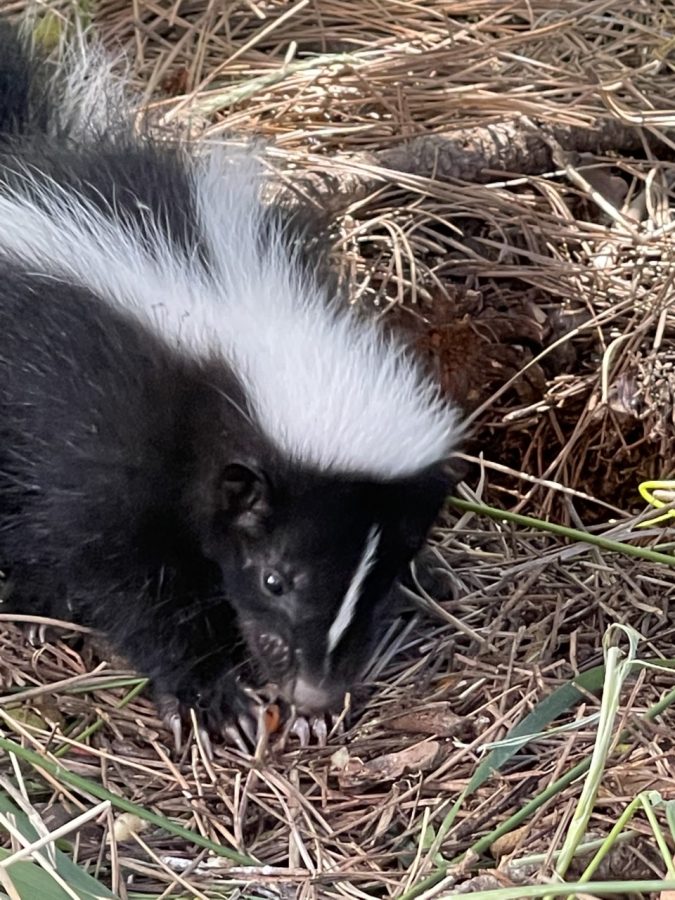Tremendous progress has been made by local rescued skunks
Avoid handling baby animals that seem to be abandoned, as their parents may return to them.
“Probably sometime in the next 20-30 years we will see rabies in our endemic skunk and raccoon population”
July 22, 2022
The orphaned skunks that were rescued last month after their mother died, have made tremendous progress at WSU’s Veterinary Teaching Hospital.
Arielle Ponds, code enforcement officer for Pullman Police Department, said the kits were found underneath a shed where wildlife had been reported to den in the past.
She said the call about the kits came from the same person that had reported a dying skunk in the same area.
“We had received a call about four days prior regarding a skunk that had been hit by a car,” Ponds said. “We didn’t realize that the skunk had babies.”
She said all of the kits were lured into a box one by one using cat food and a game camera was set up to watch for the possibility of their mother returning, which did not happen.
“This was a process of about an hour and a half, maybe two, I wanted to make sure I was getting all of the skunks,” she said.
The kits were then transported to the VTH, where they received vaccines, subcutaneous injections and food, said Dr. Nickol Finch, a zoological veterinarian at the VTH.
The subcutaneous injections helped to rehydrate the skunks, Finch said.
“[We] lift up the skin, and we’re putting pockets of fluid under the skin to help rehydrate them without having to put an intravenous catheter in,” she said.
The vaccines administered were intended to prevent canine and feline distemper and rabies, Finch said. Rabies is a growing problem that is beginning to spread across the U.S.
“Probably sometime in the next 20-30 years we will see rabies in our endemic skunk and raccoon population,” she said.
Canine and feline distemper vaccinations were administered because skunks are susceptible to both, she said. These viruses are uncommon in dogs and cats because most of them are vaccinated early on. If left untreated, both canine and feline distemper could be fatal, Finch said. The kits were also dewormed to remove any potential parasites.
“With most mammals, … if the mother has internal parasites, they can often be passed on to their babies. So when they first come in, we deworm them to get rid of those parasites,” she said.
The kits were fed with formula made with kitten and puppy foods, she said.
Other than these initial treatments it has mainly been feeding the kits and cleaning their cages, the veterinarians have tried to stay hands-off with the kits so as to not interfere with their ability to return to the wild, she said.
The kits are now in the process of being released and have been introduced to a soft release site where they will slowly reacclimate to their natural environment, Finch said.
The soft release site will operate until the skunks disperse completely and stop coming back for food, she said.
Finch said she advises against people handling baby animals that seem abandoned by their parents, as the parents may be planning to return.
“Just because you find a baby animal by itself, does not mean it’s an orphan,” she said.










